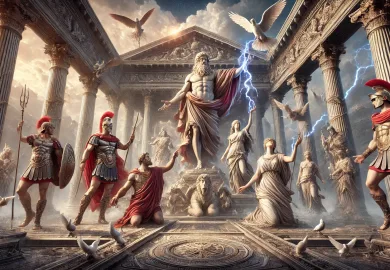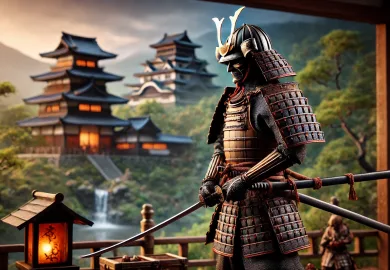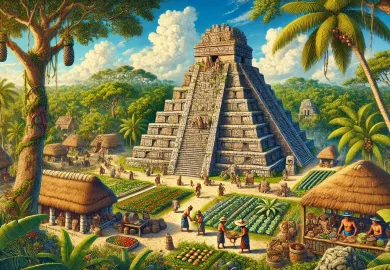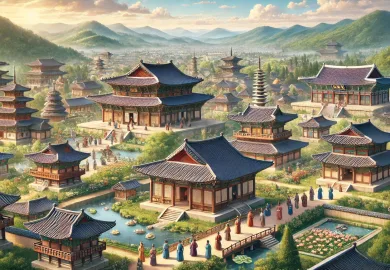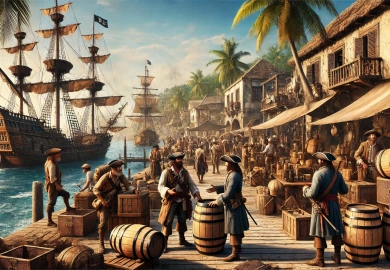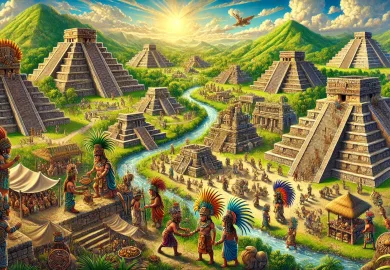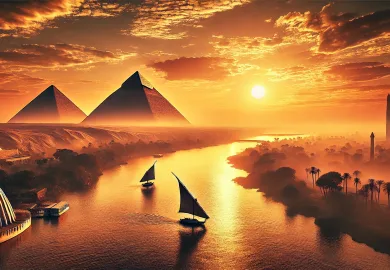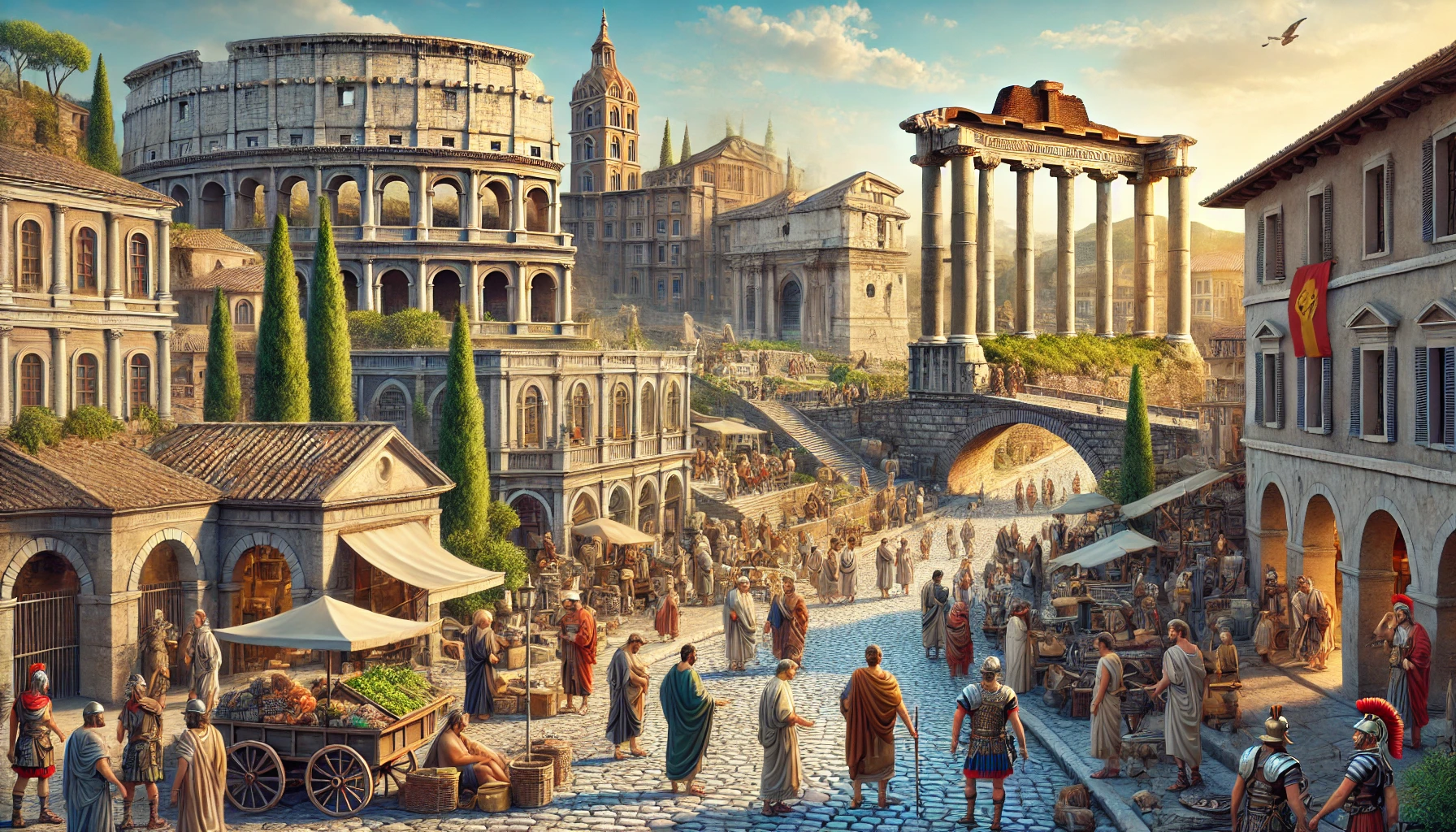
Disclaimer: This content was generated using AI. While I strive for accuracy, I encourage readers to verify important information. I use AI-generated content to increase efficiencies and to provide certain insights, but it may not reflect human expertise or opinions.
Ancient Rome, which flourished from 750 B.C. to A.D. 470, stands as one of history’s most influential civilizations. From its humble beginnings as a small settlement on the Italian Peninsula to its rise as a sprawling empire that dominated the Mediterranean world, Rome’s impact on culture, law, politics, and architecture resonates through the ages. This article delves into the rich tapestry of Roman life, exploring the society, culture, and legacy that continue to inspire modern civilization.
The Rise of Rome: From Republic to Empire
The origins of Rome are steeped in legend, with the tale of Romulus and Remus often cited as the city’s mythical foundation. However, archaeological evidence points to the early establishment of Rome as a village around 750 B.C., strategically located on the banks of the Tiber River. The city’s early inhabitants, the Latins, were soon joined by the Etruscans, who significantly influenced Rome’s development.
The Roman Republic was established in 509 B.C. after the overthrow of the last Etruscan king. This period was marked by a complex system of checks and balances, with power divided between elected officials, including consuls, senators, and popular assemblies. The Republic saw the expansion of Roman territory through military conquests, alliances, and colonization, leading to Rome’s dominance over the Italian Peninsula and beyond.
As Rome expanded, internal strife and social tensions arose, culminating in the end of the Republic and the rise of the Roman Empire under Augustus in 27 B.C. The Empire ushered in a period of relative peace and prosperity known as the Pax Romana, which lasted for over two centuries. During this time, Rome reached the height of its power, controlling vast territories stretching from Britain to Egypt and from Spain to the Middle East.
Roman Society: Class Structure and Daily Life
Roman society was hierarchical, with a rigid class system that dictated every aspect of life. At the top were the patricians, the wealthy and powerful families who controlled much of Rome’s political and economic life. The plebeians, or commoners, made up the bulk of the population and included farmers, artisans, merchants, and soldiers. Slaves, who had no rights and were considered property, formed the lowest class and were crucial to the functioning of the Roman economy.
The family was the fundamental unit of Roman society, with the paterfamilias, or male head of the household, wielding absolute authority over his family. Women, while generally expected to manage the household, could wield significant influence in both the family and society, particularly in the upper classes. Marriage was a vital institution, often arranged to forge political alliances and secure family fortunes.
Daily life in Rome varied significantly depending on one’s social class. The wealthy enjoyed luxurious homes, elaborate banquets, and a life of leisure, while the poor lived in cramped apartments and struggled to make ends meet. Public entertainment was a central part of Roman culture, with the populace flocking to gladiatorial games, chariot races, and theatrical performances. The Romans also placed great importance on religion, with a pantheon of gods and goddesses influencing every aspect of life.
The Cultural Legacy: Art, Architecture, and Literature
Roman culture was deeply influenced by the civilizations it encountered, particularly the Greeks. However, the Romans were not mere imitators; they adapted and expanded upon these influences to create a distinct cultural legacy. Roman art and architecture, characterized by grandeur and functionality, remain some of the most enduring symbols of their civilization.
Roman architecture was revolutionary, with innovations such as the arch, vault, and dome allowing for the construction of massive and enduring structures. The Colosseum, a symbol of Rome’s architectural prowess, could hold up to 50,000 spectators and hosted gladiatorial contests, mock sea battles, and other spectacles. The Pantheon, with its massive dome and oculus, is another marvel of Roman engineering that has stood the test of time.
In addition to their architectural achievements, the Romans were also prolific in the arts. Sculpture was highly valued, with realistic portraiture and grand monuments celebrating military victories and important figures. Roman literature flourished during the late Republic and early Empire, with poets like Virgil, Horace, and Ovid producing works that have influenced Western literature for centuries. Virgil’s “Aeneid,” a national epic that glorifies Rome’s origins and destiny, remains a cornerstone of classical literature.
The Fall of Rome: Causes and Consequences
The decline of the Roman Empire is a complex and multifaceted topic that has fascinated historians for centuries. While there is no single cause for Rome’s fall, a combination of internal weaknesses and external pressures contributed to the Empire’s eventual collapse in A.D. 476.
One of the most significant internal factors was the weakening of the Roman economy. Heavy taxation, a reliance on slave labor, and the debasement of currency led to economic instability and inflation. Additionally, political corruption and the constant power struggles between emperors and military leaders eroded the effectiveness of the government.
Externally, Rome faced relentless pressure from barbarian tribes, such as the Visigoths, Vandals, and Huns, who invaded Roman territories and sacked the city of Rome itself. The division of the Empire into the Western and Eastern Roman Empires in A.D. 285 by Emperor Diocletian also weakened the West, making it more vulnerable to external attacks.
The fall of Rome had profound consequences for the Western world. The collapse of centralized Roman authority led to the fragmentation of Western Europe into smaller, feudal kingdoms. However, the Eastern Roman Empire, or Byzantine Empire, continued to thrive for nearly a thousand years, preserving much of Roman culture and knowledge. Despite the fall of the Western Empire, Rome’s legacy endured, influencing subsequent civilizations through its contributions to law, governance, architecture, and culture.
Conclusion
The history of Ancient Rome, from its legendary founding to its eventual fall, is a testament to the resilience, innovation, and complexity of one of the greatest civilizations in human history. Rome’s culture, society, and achievements have left an indelible mark on the world, shaping the course of Western civilization. From its monumental architecture to its enduring legal principles, the legacy of Rome continues to inspire and inform the modern world. As we reflect on the history of this remarkable civilization, we are reminded of the enduring power of human achievement and the profound impact that one society can have on the course of history.

